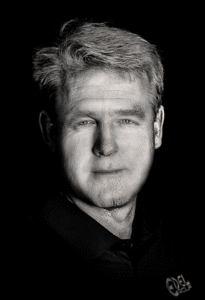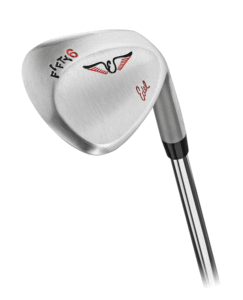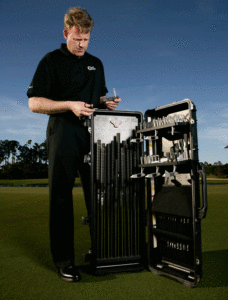 In an industrial warehouse space turned factory on the outskirts of Austin, Texas. Edel Golf has set about changing the game of golf forever.
In an industrial warehouse space turned factory on the outskirts of Austin, Texas. Edel Golf has set about changing the game of golf forever.
“Golf defines who I am,” founder/owner David Edel said, “I’ll be involved in golf for the rest of my life. I have enough up here,” he says, tapping his temple, ” to make a living at this game no matter what else happens.”
“I started building putters in 1996,” David said, sitting at his cluttered desk in Liberty Hill, Texas amid a small fortune of golf memorabilia.
“A reputation is hard to build and easy to loose and my Dad instilled that in my brother and myself at an early age. If there is a problem with a customer we will do everything in our power to make it right,” Edel says unequivocally. “It bears my name. I want to build a brand, so that the name Edel has a reputation…it means something.”
To that end, Edel is very particular about his product, accepting virtually no compromise.
“I don’t say we build a perfect putter, and we don’t. But then I don’t know what a perfect putter is. We build golf clubs that are custom fit to the player and will work for them. It will improve their game.”
Edel’s putters, wedges and irons are manufactured and assembled under his personal control.
His product is sold through a network of “fitters and retailers” who are golf teachers and pros trained to fit an Edel product to the individual golfer.
Edel custom fitters, match the right components from their Torque Balanced putter system that has over 26 million possible permutations to find the players perfect combination. Edel-trained fitters choose the optimum length, lie, head shape, offset, line combination to make them aim correctly. Then the fitter can adjust head weight, shaft weight and counter weight to control speed dictated by each golfer’s stroke pattern.
“It’s simple physics,” he says. “E=1/2MV2, or energy equals half mass times velocity squared. So we can change the energy imparted by the putter to the ball by changing the weight of the putter. If we change the energy of the ball, up or down, we lengthen or shorten the length of the roll. Our putters have the ability to be adjusted with internal weights from 339 to 354 grams, static lofts from 2 to 4 degrees and static lie angles from 67 to 74 degrees. Each Torque Balanced putter comes standard with a Pixl insert which really help if the ball if it is struck slightly off center. The whole point is consistency. When a player uses one of my putters, I want all of their practice balls to be in one tight little group.”
 “And when they look at their club, I want them to draw some pleasure from what they see,” he adds.
“And when they look at their club, I want them to draw some pleasure from what they see,” he adds.
Edel’s putters are milled from 303 stainless steel, machined under his watchful eye in his Texas Hill Country facility. Edel has put years of study into the bio mechanics and the psychology of swinging a golf club.
“Everyone wants to be able to hit a tee shot 300 yards, perfectly straight, and that’s fine. The short game, however, with putters and wedges, accounts for more strokes and if they don’t work right, it shows. Our fitting process really personalizes the club. Our competitors charge $2,000 for a consultation similar to what our clients get with a putter that cost $375 and wedges as low as $150.”
One of Edel’s new additions this year is the Single Length Irons. These irons were just released and the response has been phenomenal. David Edel is not new to making single length irons as he made the 2015 US Amateur and NCAA Championship winners single length irons from 2012-2016. David found certain flaws in the single length concept and he had to fix those issues before offering them to the public. The short irons were going to high with too much spin and the long irons were not going far enough and didn’t have enough spin. David then sought out the perfect single length shaft where he met Jason Hordeski from Paderson Shafts.
They have developed an Edel exclusive single length iron shaft. This proprietary shaft with Paderson Kinetix, mirrors the performance of flighted shafts. The short irons go lower with less spin, the mid irons are mid trajectory and mid spin, and long irons to have a higher launch with more spin. Finally easy to hit and more forgiving. Flying higher and longer with more spin and increased ball speed on the long irons as compared to conventionally built sets of irons having longer playing lengths and lighter head weights. Shafts are made from an ultra thin Kevlar and aerospace grade carbon fibers. All head are forged and available in head weights from 262 – 276 grams and lengths from 36-38 inches. Everyone is seeing more consistent ball flight and more control from all handicaps.
Edel grew up in the Pacific Northwest, in Oregon. His family owned a salmon fishing resort, general store and campground. He began working in his family’s general store at an early age.
“I was running a cash register when I was 10. I learned to farm the blue haired ladies well. I knew which ones had cookies or pies they would share with a youngster and I never missed a chance. There were families that came back to my folks place year after year and I made friends with a lot of them, mostly World War II and Korean War vets and their families.”
After high school, David Edel enrolled in the University of Oregon, in a pre-med program.
“My Dad was athletic. He played basketball in school and was a frequent golfer who put his clubs away for some time. He used to caddie at Pebble Beach. I told him I wanted to learn golf and we began playing together. We were close to a course and played as much as we could. I guess I became a little obsessed with the game. It became obvious to my Dad that I was not happy in pre-med. One day he said, ‘You want to be a golf pro, don’t you?’ “Yes,” I said sheepishly. ‘Then go be the best golf pro there is!’ My folks have always supported me in whatever I wanted to do.”
He graduated from University of Oregon with a degree in leisure studies and services.
He’s been a caddie, a golf pro, he’s taught golf and done every job there is in golf. Eventually, he toured South America teaching golf and he speaks fondly of that part of his life.
 “It was an eye opener for me, and I was very lucky. I came to know Roberto DeVicenzo, one of the all time winning-est players in history and I guess you could say we became friends. He sorta mentored me.”
“It was an eye opener for me, and I was very lucky. I came to know Roberto DeVicenzo, one of the all time winning-est players in history and I guess you could say we became friends. He sorta mentored me.”
DeVicenzo, in his career, won over 231 major tournaments, but is best known for the 1968 Masters he carelessly signed his scorecard where his playing partner, Tommy Aaron had entered a 4 instead of the 3 DeVicenzo actually shot. That error cost DeVicenzo the tie for first place.
Years later, when David Edel was back in the states, he received a call from DeVicenzo, asking if David was interested in buying some of DeVicenzo’s trophies. David bought them all, including dozens of gold and silver medallions and medals, the British Open trophy, known as the “Claret Jug” and the silver consolation prize awarded to DeVicenzo at the 1968 Masters. Just his trophy case could tell the history and story of golf.
Touring South America caused David Edel to meet others equally important to him. He met his future wife, Barbara, on a subway in Santiago, Chile, where she was an architect. They have two children, a 18-year old son who just graduated from Liberty Hill High School and will be playing golf next year at University of Central Oklahoma on a golf scholarship and a 16-year old daughter finishing up at Liberty Hill High School where her passion is dance.
“Barbara is 100% supportive. In those times when I wonder if I’m doing the right thing, she always tells me to keep going,” he smiles. “None of this would or could work without her backing.”
It was also in South America that David purchased plans for a world class golf course designed by the great Alister MacKenzie, who died in 1934. His course designs, on four different continents, are ranked consistently as some of the finest golf courses in the world. It was this course design that brought Edel to the Texas Hill Country.
“We put together a group to build this course. These plans are like finding an un-built design by Frank Lloyd Wright. Our primary financier, unfortunately, became ill and eventually passed, so the project fell apart,” he laments. “But I still have the plans, and some day there will be a MacKenzie course in the Texas Hill Country and it will be world class. And I’ll build it.”
Such a course might have a pro shop that is almost all Edel products. David dreams big, and his love of design and precision is evident in all he does.
“What is there being made today that anyone would want to collect? I mean, really? We’ve moved away from quality so that most of what we see is cheaply made junk. Right now, I’m working on a bag, that I may name the Bussey Carrier as an homage to William Bussey. He was granted a patent on a golf club caddie in 1895 and my design is not unlike his. It will be beautiful and unique as well as serving it’s purpose. Eventually, I want to build everything, even a car. We’ve started a watch company already and they are simple, strong and beautiful and they keep amazingly accurate time.”
“I want to change the game of golf. I want to give players the ability to reduce golf to an internal challenge where they are limited by their skills and not by their equipment. To do that, I’ve got to find golf pros that truly want to teach, who want to help other golfers instead of just enjoying the lifestyle. If I can do that, we’ll change golf for the better.” That’s David Edel’s challenge.
By Tony Dean
OTL Editor-In-Chief